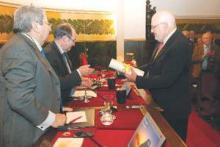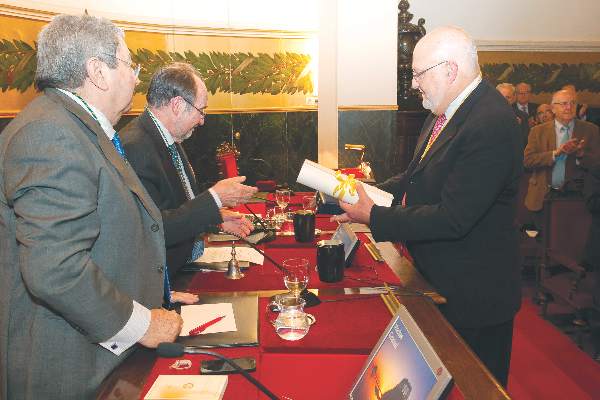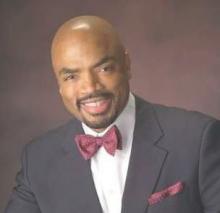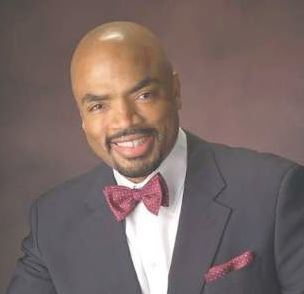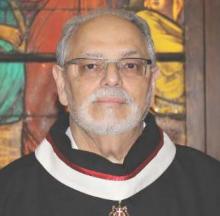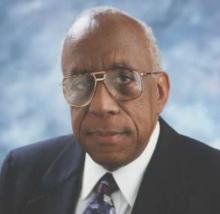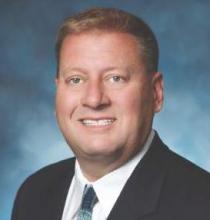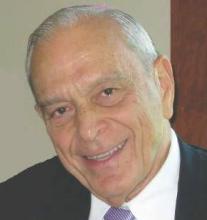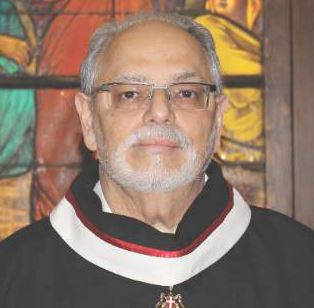User login
Board of Regents approves new seats; nominations due
The American College of Surgeons (ACS) Board of Regents, at its June meeting in Chicago, IL, approved the addition of two new seats on the Board. These new seats ensure that the Regents represent all specialty members that are certified under the auspices of the American Board of Surgery (ABS), such as trauma and vascular surgery. As a result of the change, the number of Regents increases to 14 from 12, with five members from the ABS community and one from each of the nine specialty boards. The Nominating Committee of the Board of Governors (NCBG) will be accepting nominations for surgeons to fill the new positions through September 10, 2015.
Nomination criteria
The subspecialties that fall under the purview of the ABS and from which Regents may be nominated include the following:
• Burn and critical care surgery
• Gastrointestinal surgery
• General surgery
• Pediatric surgery
• Surgical oncology
• Transplantation
• Trauma
• Vascular surgery
One new position will be filled in 2015, and the other will be filled in 2016. The NCBG will convene in fall 2015 to select the nominee for this year’s pending vacancy. The NCBG uses the following guidelines when reviewing nominees to the Board of Regents:
• Nominees must be loyal members of the College who have demonstrated outstanding integrity and medical statesmanship, along with an unquestioned devotion to the highest principles of surgical practice.
• Nominees must have demonstrated leadership qualities that might be reflected by service and active participation on ACS committees or in other components of the College.
• The NCBG recognizes the importance of Board members representing all health care professionals who practice surgery.
• The NCBG also considers geography, surgical specialty balance, and academic or community practice.
• The College encourages consideration of women and other underrepresented minorities.
• Individuals who are no longer in active surgical practice should not be nominated for election or reelection to the Board of Regents.
All nominations must include:
• A letter of recommendation
• A personal statement from the candidates detailing their ACS service and passion for the position
• The name of one reference
In addition, entities such as surgical specialty societies, ACS advisory councils, and ACS chapters that are submitting nominations must provide a description of their selection process and the total list of applicants reviewed. Any attempt to contact members of the NCBG by a candidate or on behalf of a candidate will be viewed negatively and may result in disqualification of the candidate. Applications submitted without the requested information will not be considered.
If you have nominated or been nominated this year for 2015 already, you do not need to resubmit for this year’s position. Please submit nominations to [email protected]. For more information, contact Betty Sanders, Staff Liaison for the NCBG, at 312-202-5360 or [email protected].
The American College of Surgeons (ACS) Board of Regents, at its June meeting in Chicago, IL, approved the addition of two new seats on the Board. These new seats ensure that the Regents represent all specialty members that are certified under the auspices of the American Board of Surgery (ABS), such as trauma and vascular surgery. As a result of the change, the number of Regents increases to 14 from 12, with five members from the ABS community and one from each of the nine specialty boards. The Nominating Committee of the Board of Governors (NCBG) will be accepting nominations for surgeons to fill the new positions through September 10, 2015.
Nomination criteria
The subspecialties that fall under the purview of the ABS and from which Regents may be nominated include the following:
• Burn and critical care surgery
• Gastrointestinal surgery
• General surgery
• Pediatric surgery
• Surgical oncology
• Transplantation
• Trauma
• Vascular surgery
One new position will be filled in 2015, and the other will be filled in 2016. The NCBG will convene in fall 2015 to select the nominee for this year’s pending vacancy. The NCBG uses the following guidelines when reviewing nominees to the Board of Regents:
• Nominees must be loyal members of the College who have demonstrated outstanding integrity and medical statesmanship, along with an unquestioned devotion to the highest principles of surgical practice.
• Nominees must have demonstrated leadership qualities that might be reflected by service and active participation on ACS committees or in other components of the College.
• The NCBG recognizes the importance of Board members representing all health care professionals who practice surgery.
• The NCBG also considers geography, surgical specialty balance, and academic or community practice.
• The College encourages consideration of women and other underrepresented minorities.
• Individuals who are no longer in active surgical practice should not be nominated for election or reelection to the Board of Regents.
All nominations must include:
• A letter of recommendation
• A personal statement from the candidates detailing their ACS service and passion for the position
• The name of one reference
In addition, entities such as surgical specialty societies, ACS advisory councils, and ACS chapters that are submitting nominations must provide a description of their selection process and the total list of applicants reviewed. Any attempt to contact members of the NCBG by a candidate or on behalf of a candidate will be viewed negatively and may result in disqualification of the candidate. Applications submitted without the requested information will not be considered.
If you have nominated or been nominated this year for 2015 already, you do not need to resubmit for this year’s position. Please submit nominations to [email protected]. For more information, contact Betty Sanders, Staff Liaison for the NCBG, at 312-202-5360 or [email protected].
The American College of Surgeons (ACS) Board of Regents, at its June meeting in Chicago, IL, approved the addition of two new seats on the Board. These new seats ensure that the Regents represent all specialty members that are certified under the auspices of the American Board of Surgery (ABS), such as trauma and vascular surgery. As a result of the change, the number of Regents increases to 14 from 12, with five members from the ABS community and one from each of the nine specialty boards. The Nominating Committee of the Board of Governors (NCBG) will be accepting nominations for surgeons to fill the new positions through September 10, 2015.
Nomination criteria
The subspecialties that fall under the purview of the ABS and from which Regents may be nominated include the following:
• Burn and critical care surgery
• Gastrointestinal surgery
• General surgery
• Pediatric surgery
• Surgical oncology
• Transplantation
• Trauma
• Vascular surgery
One new position will be filled in 2015, and the other will be filled in 2016. The NCBG will convene in fall 2015 to select the nominee for this year’s pending vacancy. The NCBG uses the following guidelines when reviewing nominees to the Board of Regents:
• Nominees must be loyal members of the College who have demonstrated outstanding integrity and medical statesmanship, along with an unquestioned devotion to the highest principles of surgical practice.
• Nominees must have demonstrated leadership qualities that might be reflected by service and active participation on ACS committees or in other components of the College.
• The NCBG recognizes the importance of Board members representing all health care professionals who practice surgery.
• The NCBG also considers geography, surgical specialty balance, and academic or community practice.
• The College encourages consideration of women and other underrepresented minorities.
• Individuals who are no longer in active surgical practice should not be nominated for election or reelection to the Board of Regents.
All nominations must include:
• A letter of recommendation
• A personal statement from the candidates detailing their ACS service and passion for the position
• The name of one reference
In addition, entities such as surgical specialty societies, ACS advisory councils, and ACS chapters that are submitting nominations must provide a description of their selection process and the total list of applicants reviewed. Any attempt to contact members of the NCBG by a candidate or on behalf of a candidate will be viewed negatively and may result in disqualification of the candidate. Applications submitted without the requested information will not be considered.
If you have nominated or been nominated this year for 2015 already, you do not need to resubmit for this year’s position. Please submit nominations to [email protected]. For more information, contact Betty Sanders, Staff Liaison for the NCBG, at 312-202-5360 or [email protected].
ACS extends invitation to join online military community
At Clinical Congress 2014, the American College of Surgeons (ACS) announced the formation of a strategic partnership with the U.S. Department of Defense and the establishment of the Military Health System Strategic Partnership American College of Surgeons (MHSSPACS). This collaboration of military and civilian surgeons helps to contribute to the participants’ shared culture of treating patients with an emphasis on education, research, humanitarian and disaster response, and systems-based health care.
The ACS Communities invites surgeons to join the new online Military Community. As a member of this community, you will assist the College in strengthening the military health system and the joint trauma system, as well as promoting education and training for military surgeons. Surgeons also may use the site to seek advice on surgical problems they are facing in remote areas where they are deployed. Users also may find the site serves as a valuable forum for connecting with surgeons with whom they trained or were deployed.
In addition, the College is developing a new ACS Military Chapter, the Excelsior Chapter, which will hold its inaugural meeting at Clinical Congress 2015. The goal is to encourage the participation of individuals interested in military surgery, including surgeons who are on active duty, deployed, retired, separated, or in training.
By logging onto this community, military surgeons will be able to contribute to the work being done through the ACS related to military surgical care, share advice on treatment of injured patients (in military or civilian settings), and assist in identifying areas where research might benefit military and civilian trauma care. Involvement in the Military Community may facilitate identification of military surgeons who might consider joining the ACS and assist those who are returning from deployment or considering separation in connecting with positions in academic or community practices.
To join the communities, log in to ACS Communities (if you have not specified otherwise in the College’s records, the default username is your eight-digit member ID, and the default password is your last name), go to “Browse All Communities” near the top of any page, and click the blue “Join” button next to the Military Community. For more information, contact M. Margaret “Peggy” Knudson, MD, FACS, Medical Director, MHSSPACS, at [email protected].
At Clinical Congress 2014, the American College of Surgeons (ACS) announced the formation of a strategic partnership with the U.S. Department of Defense and the establishment of the Military Health System Strategic Partnership American College of Surgeons (MHSSPACS). This collaboration of military and civilian surgeons helps to contribute to the participants’ shared culture of treating patients with an emphasis on education, research, humanitarian and disaster response, and systems-based health care.
The ACS Communities invites surgeons to join the new online Military Community. As a member of this community, you will assist the College in strengthening the military health system and the joint trauma system, as well as promoting education and training for military surgeons. Surgeons also may use the site to seek advice on surgical problems they are facing in remote areas where they are deployed. Users also may find the site serves as a valuable forum for connecting with surgeons with whom they trained or were deployed.
In addition, the College is developing a new ACS Military Chapter, the Excelsior Chapter, which will hold its inaugural meeting at Clinical Congress 2015. The goal is to encourage the participation of individuals interested in military surgery, including surgeons who are on active duty, deployed, retired, separated, or in training.
By logging onto this community, military surgeons will be able to contribute to the work being done through the ACS related to military surgical care, share advice on treatment of injured patients (in military or civilian settings), and assist in identifying areas where research might benefit military and civilian trauma care. Involvement in the Military Community may facilitate identification of military surgeons who might consider joining the ACS and assist those who are returning from deployment or considering separation in connecting with positions in academic or community practices.
To join the communities, log in to ACS Communities (if you have not specified otherwise in the College’s records, the default username is your eight-digit member ID, and the default password is your last name), go to “Browse All Communities” near the top of any page, and click the blue “Join” button next to the Military Community. For more information, contact M. Margaret “Peggy” Knudson, MD, FACS, Medical Director, MHSSPACS, at [email protected].
At Clinical Congress 2014, the American College of Surgeons (ACS) announced the formation of a strategic partnership with the U.S. Department of Defense and the establishment of the Military Health System Strategic Partnership American College of Surgeons (MHSSPACS). This collaboration of military and civilian surgeons helps to contribute to the participants’ shared culture of treating patients with an emphasis on education, research, humanitarian and disaster response, and systems-based health care.
The ACS Communities invites surgeons to join the new online Military Community. As a member of this community, you will assist the College in strengthening the military health system and the joint trauma system, as well as promoting education and training for military surgeons. Surgeons also may use the site to seek advice on surgical problems they are facing in remote areas where they are deployed. Users also may find the site serves as a valuable forum for connecting with surgeons with whom they trained or were deployed.
In addition, the College is developing a new ACS Military Chapter, the Excelsior Chapter, which will hold its inaugural meeting at Clinical Congress 2015. The goal is to encourage the participation of individuals interested in military surgery, including surgeons who are on active duty, deployed, retired, separated, or in training.
By logging onto this community, military surgeons will be able to contribute to the work being done through the ACS related to military surgical care, share advice on treatment of injured patients (in military or civilian settings), and assist in identifying areas where research might benefit military and civilian trauma care. Involvement in the Military Community may facilitate identification of military surgeons who might consider joining the ACS and assist those who are returning from deployment or considering separation in connecting with positions in academic or community practices.
To join the communities, log in to ACS Communities (if you have not specified otherwise in the College’s records, the default username is your eight-digit member ID, and the default password is your last name), go to “Browse All Communities” near the top of any page, and click the blue “Join” button next to the Military Community. For more information, contact M. Margaret “Peggy” Knudson, MD, FACS, Medical Director, MHSSPACS, at [email protected].
Dr. Pellegrini elected to Royal National Academy of Spain
Carlos A. Pellegrini, MD, FACS, FRCSI(Hon), The Henry N. Harkins Professor and Chair, department of surgery, University of Washington Medicine, Seattle, and Immediate Past-President of the American College of Surgeons, was elected a distinguished member of the Real Academia Nacional de Medicina (Royal National Academy of Medicine) in Madrid, Spain, on June 2. Dr. Pellegrini is the only person that the Royal National Academy honored on this day. In Spain, the distinction of becoming an academic at the Royal National Academy is considered in Spain to be the highest honor bestowed on physicians of all specialties. Enrique Moreno Gonzalez, MD, FACS(Hon), a 1991 Honorary Fellow of the ACS, introduced Dr. Pellegrini at the induction ceremony.
Carlos A. Pellegrini, MD, FACS, FRCSI(Hon), The Henry N. Harkins Professor and Chair, department of surgery, University of Washington Medicine, Seattle, and Immediate Past-President of the American College of Surgeons, was elected a distinguished member of the Real Academia Nacional de Medicina (Royal National Academy of Medicine) in Madrid, Spain, on June 2. Dr. Pellegrini is the only person that the Royal National Academy honored on this day. In Spain, the distinction of becoming an academic at the Royal National Academy is considered in Spain to be the highest honor bestowed on physicians of all specialties. Enrique Moreno Gonzalez, MD, FACS(Hon), a 1991 Honorary Fellow of the ACS, introduced Dr. Pellegrini at the induction ceremony.
Carlos A. Pellegrini, MD, FACS, FRCSI(Hon), The Henry N. Harkins Professor and Chair, department of surgery, University of Washington Medicine, Seattle, and Immediate Past-President of the American College of Surgeons, was elected a distinguished member of the Real Academia Nacional de Medicina (Royal National Academy of Medicine) in Madrid, Spain, on June 2. Dr. Pellegrini is the only person that the Royal National Academy honored on this day. In Spain, the distinction of becoming an academic at the Royal National Academy is considered in Spain to be the highest honor bestowed on physicians of all specialties. Enrique Moreno Gonzalez, MD, FACS(Hon), a 1991 Honorary Fellow of the ACS, introduced Dr. Pellegrini at the induction ceremony.
ACS NSQIP Data: Work hour reform does not improve surgical safety
Work hour restrictions for resident physicians, revised nationally four years ago largely to protect patients against trainees’ fatigue-related errors, have failed to have the desired effect of lowering postoperative complication rates in several common surgical specialties, according to new study results. The study was published as an “article in press,” available at https://www.facs.org/publications/jacs/inpress, on the Journal of the American College of Surgeons website in advance of print publication later this year. Patient outcomes data for the study were obtained from the American College of Surgeons National Surgical Quality Improvement Program (ACS NSQIP®). There was no significant difference in measured surgical patient outcomes between one year before and two years after the 2011 resident duty hour reform was implemented by the Accreditation Council for Graduate Medical Education (ACGME), according to the study authors. The ACGME is the accrediting and standards-setting body for approximately 9,500 U.S. medical residency programs.
The investigators evaluated outcomes within 30 days of an operation—a combined measure of patients’ deaths and serious complications—in five surgical specialties: neurosurgery, obstetrics/gynecology, orthopaedic surgery, urology, and vascular surgery.
“This study adds to the body of medical literature showing no strong association between resident duty-hour reform and change in postoperative outcomes,” said lead investigator Ravi Rajaram, MD, MSc, a Clinical Scholar in Residence at the ACS and a fellow with the Surgical Outcomes and Quality Improvement Center, Northwestern University Feinberg School of Medicine, Chicago, IL. Coauthor Clifford Y. Ko, MD, MS, MSHS, FACS, Director of ACS NSQIP and the ACS Division of Research and Optimal Patient Care, said the study shows that patient outcomes were not worse with less restrictive resident duty hours, likely because there was greater continuity of care than under the current policy.
Read more online: https://www.facs.org/media/press-releases/jacs/resident0715?
Work hour restrictions for resident physicians, revised nationally four years ago largely to protect patients against trainees’ fatigue-related errors, have failed to have the desired effect of lowering postoperative complication rates in several common surgical specialties, according to new study results. The study was published as an “article in press,” available at https://www.facs.org/publications/jacs/inpress, on the Journal of the American College of Surgeons website in advance of print publication later this year. Patient outcomes data for the study were obtained from the American College of Surgeons National Surgical Quality Improvement Program (ACS NSQIP®). There was no significant difference in measured surgical patient outcomes between one year before and two years after the 2011 resident duty hour reform was implemented by the Accreditation Council for Graduate Medical Education (ACGME), according to the study authors. The ACGME is the accrediting and standards-setting body for approximately 9,500 U.S. medical residency programs.
The investigators evaluated outcomes within 30 days of an operation—a combined measure of patients’ deaths and serious complications—in five surgical specialties: neurosurgery, obstetrics/gynecology, orthopaedic surgery, urology, and vascular surgery.
“This study adds to the body of medical literature showing no strong association between resident duty-hour reform and change in postoperative outcomes,” said lead investigator Ravi Rajaram, MD, MSc, a Clinical Scholar in Residence at the ACS and a fellow with the Surgical Outcomes and Quality Improvement Center, Northwestern University Feinberg School of Medicine, Chicago, IL. Coauthor Clifford Y. Ko, MD, MS, MSHS, FACS, Director of ACS NSQIP and the ACS Division of Research and Optimal Patient Care, said the study shows that patient outcomes were not worse with less restrictive resident duty hours, likely because there was greater continuity of care than under the current policy.
Read more online: https://www.facs.org/media/press-releases/jacs/resident0715?
Work hour restrictions for resident physicians, revised nationally four years ago largely to protect patients against trainees’ fatigue-related errors, have failed to have the desired effect of lowering postoperative complication rates in several common surgical specialties, according to new study results. The study was published as an “article in press,” available at https://www.facs.org/publications/jacs/inpress, on the Journal of the American College of Surgeons website in advance of print publication later this year. Patient outcomes data for the study were obtained from the American College of Surgeons National Surgical Quality Improvement Program (ACS NSQIP®). There was no significant difference in measured surgical patient outcomes between one year before and two years after the 2011 resident duty hour reform was implemented by the Accreditation Council for Graduate Medical Education (ACGME), according to the study authors. The ACGME is the accrediting and standards-setting body for approximately 9,500 U.S. medical residency programs.
The investigators evaluated outcomes within 30 days of an operation—a combined measure of patients’ deaths and serious complications—in five surgical specialties: neurosurgery, obstetrics/gynecology, orthopaedic surgery, urology, and vascular surgery.
“This study adds to the body of medical literature showing no strong association between resident duty-hour reform and change in postoperative outcomes,” said lead investigator Ravi Rajaram, MD, MSc, a Clinical Scholar in Residence at the ACS and a fellow with the Surgical Outcomes and Quality Improvement Center, Northwestern University Feinberg School of Medicine, Chicago, IL. Coauthor Clifford Y. Ko, MD, MS, MSHS, FACS, Director of ACS NSQIP and the ACS Division of Research and Optimal Patient Care, said the study shows that patient outcomes were not worse with less restrictive resident duty hours, likely because there was greater continuity of care than under the current policy.
Read more online: https://www.facs.org/media/press-releases/jacs/resident0715?
Apply by September 1 for ACS/JAHF Geriatrics Fellowship
The American College of Surgeons (ACS) and John A. Hartford Foundation (JAHF) are accepting applications for the ACS/JAHF James C. Thompson Geriatrics Surgical Fellowship, a new, fully funded research fellowship. Applications are due September 1. The fellowship is a two-year clinical research position at the ACS in Chicago, IL, starting July 1, 2016, with additional funds provided for the scholar to complete a master’s program at Northwestern University in Chicago. The scholar will research the care and outcomes of elderly patients undergoing surgery and assist the ACS and JAHF in their newly funded initiative to develop a standards and verification program for geriatric surgical care. The scholar will work within the ACS Division of Research and Optimal Patient Care.
In addition, the scholar will benefit from opportunities to perform research relevant to ongoing ACS geriatric projects. Applicants who have completed two or more years of clinical training, are in good standing with their program and the ACS, and are U.S. citizens are encouraged to apply.
Find more information and a complete a fellowship application online at https://www.facs.org/quality-programs/about/clinical-scholars-program/geriatric-fellowship.
Residents who have applied for a 2016 ACS Clinical Scholars in Residence position also may apply for this position. In this case, please contact [email protected].
Important dates:
Application deadline: September 1
Interview notification: September 15
Interview process: October 4−8, during ACS Clinical Congress 2015
Notification of appointment: November 1
The American College of Surgeons (ACS) and John A. Hartford Foundation (JAHF) are accepting applications for the ACS/JAHF James C. Thompson Geriatrics Surgical Fellowship, a new, fully funded research fellowship. Applications are due September 1. The fellowship is a two-year clinical research position at the ACS in Chicago, IL, starting July 1, 2016, with additional funds provided for the scholar to complete a master’s program at Northwestern University in Chicago. The scholar will research the care and outcomes of elderly patients undergoing surgery and assist the ACS and JAHF in their newly funded initiative to develop a standards and verification program for geriatric surgical care. The scholar will work within the ACS Division of Research and Optimal Patient Care.
In addition, the scholar will benefit from opportunities to perform research relevant to ongoing ACS geriatric projects. Applicants who have completed two or more years of clinical training, are in good standing with their program and the ACS, and are U.S. citizens are encouraged to apply.
Find more information and a complete a fellowship application online at https://www.facs.org/quality-programs/about/clinical-scholars-program/geriatric-fellowship.
Residents who have applied for a 2016 ACS Clinical Scholars in Residence position also may apply for this position. In this case, please contact [email protected].
Important dates:
Application deadline: September 1
Interview notification: September 15
Interview process: October 4−8, during ACS Clinical Congress 2015
Notification of appointment: November 1
The American College of Surgeons (ACS) and John A. Hartford Foundation (JAHF) are accepting applications for the ACS/JAHF James C. Thompson Geriatrics Surgical Fellowship, a new, fully funded research fellowship. Applications are due September 1. The fellowship is a two-year clinical research position at the ACS in Chicago, IL, starting July 1, 2016, with additional funds provided for the scholar to complete a master’s program at Northwestern University in Chicago. The scholar will research the care and outcomes of elderly patients undergoing surgery and assist the ACS and JAHF in their newly funded initiative to develop a standards and verification program for geriatric surgical care. The scholar will work within the ACS Division of Research and Optimal Patient Care.
In addition, the scholar will benefit from opportunities to perform research relevant to ongoing ACS geriatric projects. Applicants who have completed two or more years of clinical training, are in good standing with their program and the ACS, and are U.S. citizens are encouraged to apply.
Find more information and a complete a fellowship application online at https://www.facs.org/quality-programs/about/clinical-scholars-program/geriatric-fellowship.
Residents who have applied for a 2016 ACS Clinical Scholars in Residence position also may apply for this position. In this case, please contact [email protected].
Important dates:
Application deadline: September 1
Interview notification: September 15
Interview process: October 4−8, during ACS Clinical Congress 2015
Notification of appointment: November 1
House passes 21st Century Cures Legislation
The U.S. House of Representatives passed the 21st Century Cures Act (H.R. 6) Friday, July 10, by an overwhelming margin, with 344 members voting in favor of the legislation. This bill is intended to help bring the U.S. health care system into the 21st century by investing in scientific and medical innovation, incorporating the patient perspective, and modernizing clinical trials to deliver better, faster cures to more patients in need. Specifically, the act calls for increasing funding for medical research at the National Institutes of Health and the Food and Drug Administration, as well as rewriting procedures for approval of drugs and medical devices. Learn more about the legislation at https://www.congress.gov/bill/114th-congress/house-bill/6.
H.R. 6 would cost approximately $98 billion to implement over 10 years, according to an analysis from the Congressional Budget Office (CBO). The CBO also estimates that the legislation would decrease federal deficits by $518 million over 10 years.
The Senate will likely consider its companion legislation in early 2016. The White House has said it looks forward to working with Congress as the legislation moves forward.
The U.S. House of Representatives passed the 21st Century Cures Act (H.R. 6) Friday, July 10, by an overwhelming margin, with 344 members voting in favor of the legislation. This bill is intended to help bring the U.S. health care system into the 21st century by investing in scientific and medical innovation, incorporating the patient perspective, and modernizing clinical trials to deliver better, faster cures to more patients in need. Specifically, the act calls for increasing funding for medical research at the National Institutes of Health and the Food and Drug Administration, as well as rewriting procedures for approval of drugs and medical devices. Learn more about the legislation at https://www.congress.gov/bill/114th-congress/house-bill/6.
H.R. 6 would cost approximately $98 billion to implement over 10 years, according to an analysis from the Congressional Budget Office (CBO). The CBO also estimates that the legislation would decrease federal deficits by $518 million over 10 years.
The Senate will likely consider its companion legislation in early 2016. The White House has said it looks forward to working with Congress as the legislation moves forward.
The U.S. House of Representatives passed the 21st Century Cures Act (H.R. 6) Friday, July 10, by an overwhelming margin, with 344 members voting in favor of the legislation. This bill is intended to help bring the U.S. health care system into the 21st century by investing in scientific and medical innovation, incorporating the patient perspective, and modernizing clinical trials to deliver better, faster cures to more patients in need. Specifically, the act calls for increasing funding for medical research at the National Institutes of Health and the Food and Drug Administration, as well as rewriting procedures for approval of drugs and medical devices. Learn more about the legislation at https://www.congress.gov/bill/114th-congress/house-bill/6.
H.R. 6 would cost approximately $98 billion to implement over 10 years, according to an analysis from the Congressional Budget Office (CBO). The CBO also estimates that the legislation would decrease federal deficits by $518 million over 10 years.
The Senate will likely consider its companion legislation in early 2016. The White House has said it looks forward to working with Congress as the legislation moves forward.
Renew your ACS Fellowship Dues by October 1
The American College of Surgeons (ACS) has mailed final notices to Fellows who owe 2015 dues. ACS members can determine if they have an outstanding balance by logging on to the Members Only section of the ACS website at www.facs.org. Click on Member Login and enter your username and password. If you have forgotten this information, contact [email protected]. Once logged in, click on Welcome and then My Profile. Fellows who owe dues will see a message that links to an online payment site. Members who do not wish to pay online may submit payment in response to the final dues notice that will arrive by mail soon. All outstanding dues should be paid before October 1.
Note that in addition to paying your dues online, you also may update your profile and take advantage of all the members-only benefits available to you through the Member Login. These benefits include, but are not limited to, the Membership Directory, which allows you to search for colleagues; access to the more than 50 online communities, downloadable artwork for Fellows of the College and the Fellowship Pledge poster; access to discount programs and the ACS Insurance Programs; the ability to log in and view your continuing medical education (CME) credits via the MyCME link; and participate in the Surgeon-Specific Registry through the My Cases link. If you have any questions or require assistance, contact [email protected].
The American College of Surgeons (ACS) has mailed final notices to Fellows who owe 2015 dues. ACS members can determine if they have an outstanding balance by logging on to the Members Only section of the ACS website at www.facs.org. Click on Member Login and enter your username and password. If you have forgotten this information, contact [email protected]. Once logged in, click on Welcome and then My Profile. Fellows who owe dues will see a message that links to an online payment site. Members who do not wish to pay online may submit payment in response to the final dues notice that will arrive by mail soon. All outstanding dues should be paid before October 1.
Note that in addition to paying your dues online, you also may update your profile and take advantage of all the members-only benefits available to you through the Member Login. These benefits include, but are not limited to, the Membership Directory, which allows you to search for colleagues; access to the more than 50 online communities, downloadable artwork for Fellows of the College and the Fellowship Pledge poster; access to discount programs and the ACS Insurance Programs; the ability to log in and view your continuing medical education (CME) credits via the MyCME link; and participate in the Surgeon-Specific Registry through the My Cases link. If you have any questions or require assistance, contact [email protected].
The American College of Surgeons (ACS) has mailed final notices to Fellows who owe 2015 dues. ACS members can determine if they have an outstanding balance by logging on to the Members Only section of the ACS website at www.facs.org. Click on Member Login and enter your username and password. If you have forgotten this information, contact [email protected]. Once logged in, click on Welcome and then My Profile. Fellows who owe dues will see a message that links to an online payment site. Members who do not wish to pay online may submit payment in response to the final dues notice that will arrive by mail soon. All outstanding dues should be paid before October 1.
Note that in addition to paying your dues online, you also may update your profile and take advantage of all the members-only benefits available to you through the Member Login. These benefits include, but are not limited to, the Membership Directory, which allows you to search for colleagues; access to the more than 50 online communities, downloadable artwork for Fellows of the College and the Fellowship Pledge poster; access to discount programs and the ACS Insurance Programs; the ability to log in and view your continuing medical education (CME) credits via the MyCME link; and participate in the Surgeon-Specific Registry through the My Cases link. If you have any questions or require assistance, contact [email protected].
Dr. Henri Ford performs first separation of conjoined twins in Haiti
Henri R. Ford, MD, FACS, completed the first separation of conjoined twins in his native country of Haiti. CBS News reported on this surgical milestone on June 7. Dr. Ford, who is a member of the American College of Surgeons (ACS) Board of Regents and several other ACS committees, assembled a team of more than two dozen volunteer health professionals from the U.S. who trained for months with Haitian medical staff for the procedure. The operation to separate the 6-month-old girls, Marian and Michelle Bernard, who were joined at the abdomen, took nearly 7 hours. They left the hospital in early June, 2 weeks after the procedure was completed.
Physicians at University Hospital in Mirebalais, Haiti, where the operation was performed, contacted Dr. Ford, chief of surgery at Children’s Hospital, Los Angeles, CA, when the twins were born in November. Dr. Ford told CBS News it was “extremely gratifying” to be able to perform the operation in his home country alongside Haitian surgeons whom he helped to train.
Dr. Ford left Haiti with his family as a teenager to move to New York, NY, but returned for 2 weeks after the 2010 earthquake. Since that trip, Dr. Ford has returned regularly to provide medical care to its residents. The earthquake prompted the Haitian government to team up with Partners in Health, an organization that provides modern medical care to resource-poor countries, and opened University Hospital in 2013.
View a video clip of the “Sunday Morning” newscast online at http://www.cbsnews.com/news/conjoined-twins-delicate-separation/.
Henri R. Ford, MD, FACS, completed the first separation of conjoined twins in his native country of Haiti. CBS News reported on this surgical milestone on June 7. Dr. Ford, who is a member of the American College of Surgeons (ACS) Board of Regents and several other ACS committees, assembled a team of more than two dozen volunteer health professionals from the U.S. who trained for months with Haitian medical staff for the procedure. The operation to separate the 6-month-old girls, Marian and Michelle Bernard, who were joined at the abdomen, took nearly 7 hours. They left the hospital in early June, 2 weeks after the procedure was completed.
Physicians at University Hospital in Mirebalais, Haiti, where the operation was performed, contacted Dr. Ford, chief of surgery at Children’s Hospital, Los Angeles, CA, when the twins were born in November. Dr. Ford told CBS News it was “extremely gratifying” to be able to perform the operation in his home country alongside Haitian surgeons whom he helped to train.
Dr. Ford left Haiti with his family as a teenager to move to New York, NY, but returned for 2 weeks after the 2010 earthquake. Since that trip, Dr. Ford has returned regularly to provide medical care to its residents. The earthquake prompted the Haitian government to team up with Partners in Health, an organization that provides modern medical care to resource-poor countries, and opened University Hospital in 2013.
View a video clip of the “Sunday Morning” newscast online at http://www.cbsnews.com/news/conjoined-twins-delicate-separation/.
Henri R. Ford, MD, FACS, completed the first separation of conjoined twins in his native country of Haiti. CBS News reported on this surgical milestone on June 7. Dr. Ford, who is a member of the American College of Surgeons (ACS) Board of Regents and several other ACS committees, assembled a team of more than two dozen volunteer health professionals from the U.S. who trained for months with Haitian medical staff for the procedure. The operation to separate the 6-month-old girls, Marian and Michelle Bernard, who were joined at the abdomen, took nearly 7 hours. They left the hospital in early June, 2 weeks after the procedure was completed.
Physicians at University Hospital in Mirebalais, Haiti, where the operation was performed, contacted Dr. Ford, chief of surgery at Children’s Hospital, Los Angeles, CA, when the twins were born in November. Dr. Ford told CBS News it was “extremely gratifying” to be able to perform the operation in his home country alongside Haitian surgeons whom he helped to train.
Dr. Ford left Haiti with his family as a teenager to move to New York, NY, but returned for 2 weeks after the 2010 earthquake. Since that trip, Dr. Ford has returned regularly to provide medical care to its residents. The earthquake prompted the Haitian government to team up with Partners in Health, an organization that provides modern medical care to resource-poor countries, and opened University Hospital in 2013.
View a video clip of the “Sunday Morning” newscast online at http://www.cbsnews.com/news/conjoined-twins-delicate-separation/.
Register for General Surgery Review Course
The American College of Surgeons (ACS) Comprehensive General Surgery Review Course will take place July 30–August 2 in Chicago, IL. The intensive three-and-a-half-day review course will cover essential content areas in general surgery, including abdomen, alimentary tract, endocrine, oncology, perioperative care, skin and breast, surgical critical care, trauma, and vascular operations. Course Chair John A. Weigelt, MD, DVM, FACS, and a distinguished faculty will use didactic and case-based formats for a comprehensive and practical review. Dr. Weigelt is Medical Director of the ACS Surgical Education and Self-Assessment Program and professor of surgery; chief, division of trauma and critical care; and associate dean of clinical quality at the Medical College of Wisconsin, Milwaukee.
The course will feature a variety of self-assessment materials as well as five monthly online modules following the course. Organized by the ACS Division of Education, this course will help to fulfill the requirements for Maintenance of Certification, Part 2, and should be helpful to surgeons preparing for recertification examinations. Self-assessment credits will be available.
Space is limited and registration will be accepted on a first-come, first-served basis. For more information and to register for the course, view the ACS course page at https://www.facs.org/education/division-of-education/courses/general-surgery, e-mail [email protected], or call 312-202-5018. The ACS designates this live activity for a maximum of 30 AMA PRA Category 1 Credits™. Physicians should claim only the credit commensurate with the extent of their participation in the activity.
The American College of Surgeons (ACS) Comprehensive General Surgery Review Course will take place July 30–August 2 in Chicago, IL. The intensive three-and-a-half-day review course will cover essential content areas in general surgery, including abdomen, alimentary tract, endocrine, oncology, perioperative care, skin and breast, surgical critical care, trauma, and vascular operations. Course Chair John A. Weigelt, MD, DVM, FACS, and a distinguished faculty will use didactic and case-based formats for a comprehensive and practical review. Dr. Weigelt is Medical Director of the ACS Surgical Education and Self-Assessment Program and professor of surgery; chief, division of trauma and critical care; and associate dean of clinical quality at the Medical College of Wisconsin, Milwaukee.
The course will feature a variety of self-assessment materials as well as five monthly online modules following the course. Organized by the ACS Division of Education, this course will help to fulfill the requirements for Maintenance of Certification, Part 2, and should be helpful to surgeons preparing for recertification examinations. Self-assessment credits will be available.
Space is limited and registration will be accepted on a first-come, first-served basis. For more information and to register for the course, view the ACS course page at https://www.facs.org/education/division-of-education/courses/general-surgery, e-mail [email protected], or call 312-202-5018. The ACS designates this live activity for a maximum of 30 AMA PRA Category 1 Credits™. Physicians should claim only the credit commensurate with the extent of their participation in the activity.
The American College of Surgeons (ACS) Comprehensive General Surgery Review Course will take place July 30–August 2 in Chicago, IL. The intensive three-and-a-half-day review course will cover essential content areas in general surgery, including abdomen, alimentary tract, endocrine, oncology, perioperative care, skin and breast, surgical critical care, trauma, and vascular operations. Course Chair John A. Weigelt, MD, DVM, FACS, and a distinguished faculty will use didactic and case-based formats for a comprehensive and practical review. Dr. Weigelt is Medical Director of the ACS Surgical Education and Self-Assessment Program and professor of surgery; chief, division of trauma and critical care; and associate dean of clinical quality at the Medical College of Wisconsin, Milwaukee.
The course will feature a variety of self-assessment materials as well as five monthly online modules following the course. Organized by the ACS Division of Education, this course will help to fulfill the requirements for Maintenance of Certification, Part 2, and should be helpful to surgeons preparing for recertification examinations. Self-assessment credits will be available.
Space is limited and registration will be accepted on a first-come, first-served basis. For more information and to register for the course, view the ACS course page at https://www.facs.org/education/division-of-education/courses/general-surgery, e-mail [email protected], or call 312-202-5018. The ACS designates this live activity for a maximum of 30 AMA PRA Category 1 Credits™. Physicians should claim only the credit commensurate with the extent of their participation in the activity.
Members in the news
Juan A. Asensio, MD, FACS, FCCM, FRCS, was honored at a formal investiture last November at Saint Patrick’s Cathedral in New York, NY, as a Knight of Malta. Dr. Asensio directs the comprehensive Level I trauma center at CHI Health Creighton University Medical Center, Omaha, NE, where he is a professor of surgery and chief of the division of trauma surgery and surgical critical care. In addition, he is director of the university’s trauma center and trauma program.
The more than 900-year-old Order of Malta is the only remaining active military order from the Crusades. Members assist patients in need, including the young, elderly, handicapped, homeless, and those with terminal illnesses. Through its worldwide relief corps, Malteser International, the order assists refugees and victims of natural disasters, epidemics, and armed conflicts.
Morehouse School of Medicine, Atlanta, GA, in May unveiled a new medical library, named in honor of the late M. Delmar Edwards, MD, FACS, a former trustee of the college; the first African American to practice surgery in Columbus, GA; and a trailblazer for many young surgeons. Dr. Edwards died in Atlanta in 2009 at age 83, but he left a legacy as a surgeon, activist, educator, and philanthropist. Through the former Columbus-Fort Benning Medical Scholarships, one of the largest endowed scholarship funds at the school, now renamed the M. Delmar Edwards, MD, Endowed Scholarship, he helped many medical students complete their education. A native of Arkansas, Dr. Edwards was the third African Americans admitted to the University of Arkansas College of Medicine, Fayetteville.
Stanley J. Kurek, Jr., DO, FACS, professor of surgery, University of South Florida Morsani College of Medicine, and medical director, trauma, acute care surgery and surgical critical care, Lawnwood Regional Medical Center, Ft. Pierce, FL, was recently elected to a one-year term as the 28th president of the Eastern Association for the Surgery of Trauma (EAST). His EAST presidential message is available at www.east.org/news-and-events/news-details/5/message-from-the-east-president.
Barry M. Manuel, MD, FACS, a recipient of the American College of Surgeons (ACS) Distinguished Service Award (DSA) and Past-President of the Massachusetts Chapter of the College, received the Massachusetts Medical Society’s (MMS) 2015 Award for Distinguished Service. The prestigious honor is given annually to an MMS member who has made a lasting contribution to the practice of medicine over a lifetime and made significant contributions to the goals of the MMS.
The award was presented to Dr. Manuel at the MMS annual meeting May 1 in Boston. In 2010, the MMS honored Dr. Manuel with the Lifetime Achievement Award.
Dr. Manuel served as associate dean for continuing medical education, 1980−2014, and professor of surgery, 1982−2014, at the Boston University School of Medicine (BUSM). With his June 30 retirement, he now holds the titles of associate dean emeritus and professor of surgery emeritus. In addition, the Office of Continuing Medical Education at Boston University will be renamed the Barry M. Manuel Office of Continuing Medical Education. Dr. Manuel received the DSA from the ACS in 1993 and in 1997 was the recipient of BUSM’s Distinguished Alumni Award.
Robert W. Panton, MD, FACS, River Forest, IL, was elected vice-speaker of the Illinois State Medical Society (ISMS) during its recent annual meeting. A board-certified specialist in ophthalmologycertified specialist in ophthalmology, Dr. Panton practices at Rush Oak Park Hospital; West Suburban Hospital in Oak Park, IL; and Westlake Hospital and Loyola Gottlieb Memorial Hospital, Melrose Park, IL.
He served as Chicago Medical Society president in 2013–2014. Dr. Panton is also a fellow of the American Academy of Ophthalmology.
.
Juan A. Asensio, MD, FACS, FCCM, FRCS, was honored at a formal investiture last November at Saint Patrick’s Cathedral in New York, NY, as a Knight of Malta. Dr. Asensio directs the comprehensive Level I trauma center at CHI Health Creighton University Medical Center, Omaha, NE, where he is a professor of surgery and chief of the division of trauma surgery and surgical critical care. In addition, he is director of the university’s trauma center and trauma program.
The more than 900-year-old Order of Malta is the only remaining active military order from the Crusades. Members assist patients in need, including the young, elderly, handicapped, homeless, and those with terminal illnesses. Through its worldwide relief corps, Malteser International, the order assists refugees and victims of natural disasters, epidemics, and armed conflicts.
Morehouse School of Medicine, Atlanta, GA, in May unveiled a new medical library, named in honor of the late M. Delmar Edwards, MD, FACS, a former trustee of the college; the first African American to practice surgery in Columbus, GA; and a trailblazer for many young surgeons. Dr. Edwards died in Atlanta in 2009 at age 83, but he left a legacy as a surgeon, activist, educator, and philanthropist. Through the former Columbus-Fort Benning Medical Scholarships, one of the largest endowed scholarship funds at the school, now renamed the M. Delmar Edwards, MD, Endowed Scholarship, he helped many medical students complete their education. A native of Arkansas, Dr. Edwards was the third African Americans admitted to the University of Arkansas College of Medicine, Fayetteville.
Stanley J. Kurek, Jr., DO, FACS, professor of surgery, University of South Florida Morsani College of Medicine, and medical director, trauma, acute care surgery and surgical critical care, Lawnwood Regional Medical Center, Ft. Pierce, FL, was recently elected to a one-year term as the 28th president of the Eastern Association for the Surgery of Trauma (EAST). His EAST presidential message is available at www.east.org/news-and-events/news-details/5/message-from-the-east-president.
Barry M. Manuel, MD, FACS, a recipient of the American College of Surgeons (ACS) Distinguished Service Award (DSA) and Past-President of the Massachusetts Chapter of the College, received the Massachusetts Medical Society’s (MMS) 2015 Award for Distinguished Service. The prestigious honor is given annually to an MMS member who has made a lasting contribution to the practice of medicine over a lifetime and made significant contributions to the goals of the MMS.
The award was presented to Dr. Manuel at the MMS annual meeting May 1 in Boston. In 2010, the MMS honored Dr. Manuel with the Lifetime Achievement Award.
Dr. Manuel served as associate dean for continuing medical education, 1980−2014, and professor of surgery, 1982−2014, at the Boston University School of Medicine (BUSM). With his June 30 retirement, he now holds the titles of associate dean emeritus and professor of surgery emeritus. In addition, the Office of Continuing Medical Education at Boston University will be renamed the Barry M. Manuel Office of Continuing Medical Education. Dr. Manuel received the DSA from the ACS in 1993 and in 1997 was the recipient of BUSM’s Distinguished Alumni Award.
Robert W. Panton, MD, FACS, River Forest, IL, was elected vice-speaker of the Illinois State Medical Society (ISMS) during its recent annual meeting. A board-certified specialist in ophthalmologycertified specialist in ophthalmology, Dr. Panton practices at Rush Oak Park Hospital; West Suburban Hospital in Oak Park, IL; and Westlake Hospital and Loyola Gottlieb Memorial Hospital, Melrose Park, IL.
He served as Chicago Medical Society president in 2013–2014. Dr. Panton is also a fellow of the American Academy of Ophthalmology.
.
Juan A. Asensio, MD, FACS, FCCM, FRCS, was honored at a formal investiture last November at Saint Patrick’s Cathedral in New York, NY, as a Knight of Malta. Dr. Asensio directs the comprehensive Level I trauma center at CHI Health Creighton University Medical Center, Omaha, NE, where he is a professor of surgery and chief of the division of trauma surgery and surgical critical care. In addition, he is director of the university’s trauma center and trauma program.
The more than 900-year-old Order of Malta is the only remaining active military order from the Crusades. Members assist patients in need, including the young, elderly, handicapped, homeless, and those with terminal illnesses. Through its worldwide relief corps, Malteser International, the order assists refugees and victims of natural disasters, epidemics, and armed conflicts.
Morehouse School of Medicine, Atlanta, GA, in May unveiled a new medical library, named in honor of the late M. Delmar Edwards, MD, FACS, a former trustee of the college; the first African American to practice surgery in Columbus, GA; and a trailblazer for many young surgeons. Dr. Edwards died in Atlanta in 2009 at age 83, but he left a legacy as a surgeon, activist, educator, and philanthropist. Through the former Columbus-Fort Benning Medical Scholarships, one of the largest endowed scholarship funds at the school, now renamed the M. Delmar Edwards, MD, Endowed Scholarship, he helped many medical students complete their education. A native of Arkansas, Dr. Edwards was the third African Americans admitted to the University of Arkansas College of Medicine, Fayetteville.
Stanley J. Kurek, Jr., DO, FACS, professor of surgery, University of South Florida Morsani College of Medicine, and medical director, trauma, acute care surgery and surgical critical care, Lawnwood Regional Medical Center, Ft. Pierce, FL, was recently elected to a one-year term as the 28th president of the Eastern Association for the Surgery of Trauma (EAST). His EAST presidential message is available at www.east.org/news-and-events/news-details/5/message-from-the-east-president.
Barry M. Manuel, MD, FACS, a recipient of the American College of Surgeons (ACS) Distinguished Service Award (DSA) and Past-President of the Massachusetts Chapter of the College, received the Massachusetts Medical Society’s (MMS) 2015 Award for Distinguished Service. The prestigious honor is given annually to an MMS member who has made a lasting contribution to the practice of medicine over a lifetime and made significant contributions to the goals of the MMS.
The award was presented to Dr. Manuel at the MMS annual meeting May 1 in Boston. In 2010, the MMS honored Dr. Manuel with the Lifetime Achievement Award.
Dr. Manuel served as associate dean for continuing medical education, 1980−2014, and professor of surgery, 1982−2014, at the Boston University School of Medicine (BUSM). With his June 30 retirement, he now holds the titles of associate dean emeritus and professor of surgery emeritus. In addition, the Office of Continuing Medical Education at Boston University will be renamed the Barry M. Manuel Office of Continuing Medical Education. Dr. Manuel received the DSA from the ACS in 1993 and in 1997 was the recipient of BUSM’s Distinguished Alumni Award.
Robert W. Panton, MD, FACS, River Forest, IL, was elected vice-speaker of the Illinois State Medical Society (ISMS) during its recent annual meeting. A board-certified specialist in ophthalmologycertified specialist in ophthalmology, Dr. Panton practices at Rush Oak Park Hospital; West Suburban Hospital in Oak Park, IL; and Westlake Hospital and Loyola Gottlieb Memorial Hospital, Melrose Park, IL.
He served as Chicago Medical Society president in 2013–2014. Dr. Panton is also a fellow of the American Academy of Ophthalmology.
.
